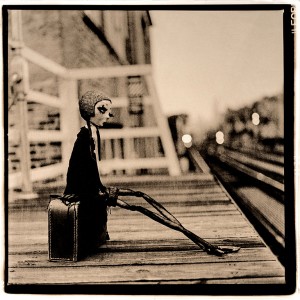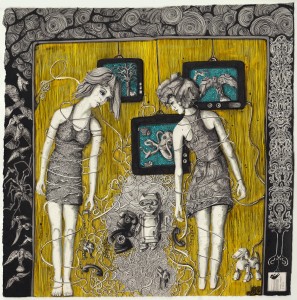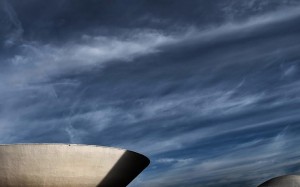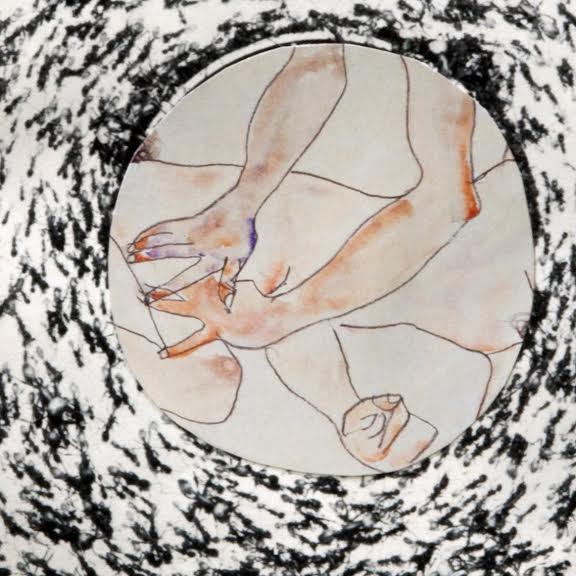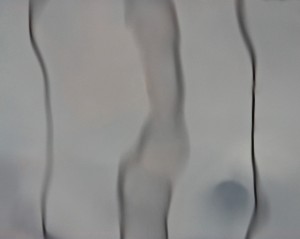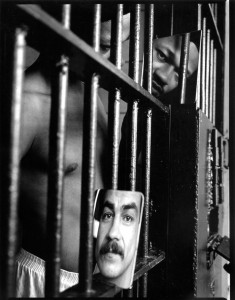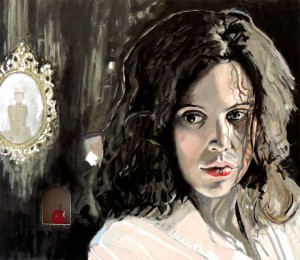Katarzyna Derda
Katarzyna Derda enriches the dark shadows of the lith print with a playful melancholy. Her images resonate with moments of solitary emotions. By placing dolls in urban settings to tell the story, she creates photographs that are imaginative, illusive and unconventional.
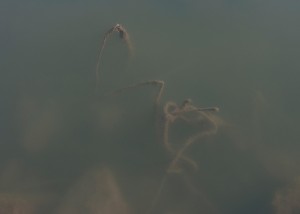
Nancy Fewkes, Notes Along a Shallow Margin Series #1 (fragment), Archival Digital Print, 18″x28″, 2015.
Irena Siwek
The movement of my hand subconsciously creates the form. Each stroke inspires the next; in return a certain flow is created. There is an absolute connection between my thoughts, feelings and the movement of my hand. I carefully yet spontaneously place lines to emanate texture, contrast and depth and in the process invent captivating stories. My artwork is infused with cultural memories and reminiscences of fairy tales from my childhood in Poland. Inspiration comes from people, nature and unpretentious things encountered in life.
Michał Paweł MarkowskiFiction, essay, and photography — these are three genres, three different languages I intensely cultivate in order to orient myself in life and to see what else may happen. They are three ways of traveling if by the latter we understand being-elsewhere, or going-to-the-less known… When I set off to write and when I hang out with my Leica in deserted nooks and crannies in remote countries, as well as in my immediate neighborhood, the first thing is to see differently. I put aside what I already know and look for new connections, new passages between concepts and things, between quotes and backyards, between sentences and streets. In what I do—in fiction, in essay, in photography—I try to over and again move the boundaries of the said and of the perceived.
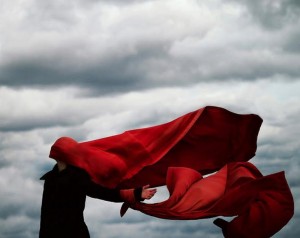
Katharine Hannah Ignorance
Archival Digital Print 8″x10″, 2013.
Katharine Schutta
She creates paper collages, visual poems, that are explorations of the human condition – of art, intimacy, and transgression. Incessantly culling, cropping, repositioning and realigning images from a vast collection of auction catalogues, magazines and books, Schutta collides contemporary art and art history, science, technology and the natural world.
Iwona BiedermannWithIn the line is about poetic movement of energy and recognition of simple forms. I’m interested in perception, observation and interpretation as well as time and motion. The process is purely photographic. Unaltered images present exactly what was seen: suggestive forms, color of light, texture and shadows. Perceptions, which are not analyzed by reason. The element of time, the wind, a cloud, the rain transform the concrete into the abstract. It is like a conversation. The dialog between impressions and meaning becomes a universal language when reproduced on a piece of paper. I’m present, open and ready to recognize.
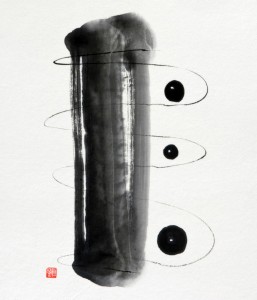
Lidia Rozmus, Third Point,
Sumi-e Ink on Rice Paper,
24”x32” 2014.
Lidia Rozmus
Lidia Rozmus uses an ancient technique of sumi-e (ink and brush) to create abstract paintings. Her work relies on simplicity of thought, action, and form to create works of understated beauty.

Jola Nawrocka,
Untitled, Mixed Media On Canvas,
24″ x 30″, 2011.
Jola Nawrocka
My perception of the environment is full of contrast and contradiction. I am fascinated by its variability, pulsing motion, and its continuous existence. The themes of my work are the transformation of the circular, fragmentary elements of the urban landscape and sometimes open space… Overlaying, removing, scraping and repainting various layers of paper and paint refer to the concept of construction and deconstruction. Much like decomposition, which occurs in nature. Decay is a necessary element, the next stage, and an announcement of new life.
Lloyd DeGrane
Sometimes, when I look through the photographs I made while working on my prison project, I wonder, Why did I do this? The answer eludes me now. I was more of an adventurous explorer then, of worlds that were foreign and sometimes frightening to me. I knew nothing of the people living or working behind prison walls. But, looking back, realizing I was living in what would eventually become the most incarcerated nation on the planet, I had an intense desire to somehow climb over those walls and experience the world within.
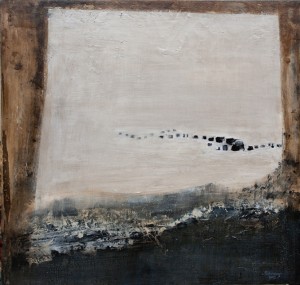
Agnieszka Podczaszy, Single frame,
Mixed Media, 48″x48″, 2010.
Agnieszka Podczaszy
I treat painting as my own private space for finding peace, expressing my emotions and sensitivities, and searching for the colors and pictures that are held in my memory. I believe that one of the biggest parts in creating is the inspiration that I don’t actually look for – it finds me. It appears in moments of rapture, as I look into the reality surrounding me. Only then do I shape my perceptions and images into deliberate, artistic form.
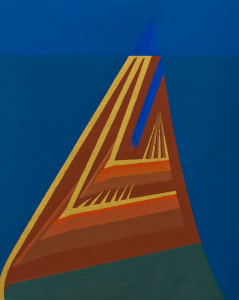
Jan Brud, Women and Mountain,
Acrylic on Canvas, 25″x26″, 2011.
Jan Brud
All elements in these paintings are borrowed from past and in nature are eclectic. The series title is taken from the painting “Woman and Mountain” by my teacher Jerzy Nowosielski. Only intensity of “Light” I can call mine.
This is the place in painting where spiritual life begins.
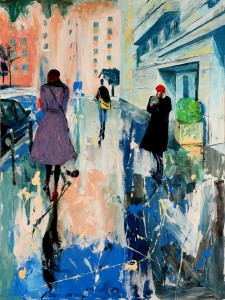
Marie-Thé Pent,
Parisian Pedestrians,
Oil on Canvas, 30″x40″, 2011.
Marie-Thé Pent
For Marie-Thé Pent painting is all about expression. The intimate moments of creation come from mixing the colors on a palette, facing the canvas and attacking it with all the gutsy energy she has stored in herself. She invites the viewer to make up their own stories about the characters and landscapes that inhabit her paintings.
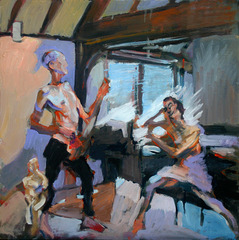
Piotr Antonow, Untitled,
Oil on Board, 24″x24″, 2011.
Piotr Antonow
I’m discovering and inventing flat abstract elements or “objects” located on the surface of the image, serving as building blocks and recognized by the human eye as the language of structure and space.
In this way, my images may be considered a translation work.
Tom Robinson
The new series contains a small vignette and sculpture behind the surface of each painting. I am attempting to find a new ‘spaciality’, color sense and mood.
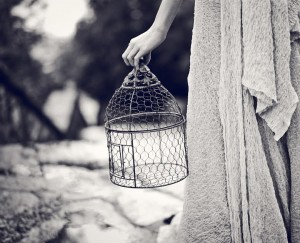
Kasia Jarosz, “Involution” A path to inner self, Silver-Gelatin Print, Selenium, 22″x18″, 2013.
Kasia Jarosz
My photography is the constant study of light and it’s relevance to
time and shape of the objects that I’m photographing. I use my camera like a pencil to create stories.
